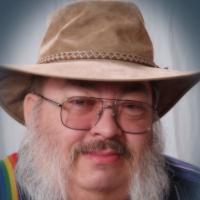Сообщений: 20
Язык: English
acdibble (Показать профиль) 14 сентября 2012 г., 2:40:41
creedelambard:This is one thing I would love to find. Illustrated posters or large pictures showing groups of related things with their Esperanto names. Barnyard animals, kinds of trees, parts of the body, furniture, parts of a computer, parts of an auto, that sort of thing. I've seen books with similar content that were aimed at young children and posters like the ones I've described aimed at those learning, for instance, French. Doesn't seem like it would be all that difficult to either relabel existing posters geared toward another language, or just make new ones.Here is a visual dictionary, not aimed at teaching English, but just as a visual dictionary.
The Germans also have Bildwörterbücher (bildvortaroj). A quick Google search terms up the same images that are used on that English site, but in German.
sudanglo (Показать профиль) 14 сентября 2012 г., 12:13:46
Do you know the word for "barn" or "tractor" right off the top of your head? (or "engine" or "headlight").Yes thanks, I do - Grenejo/Pajlejo, Traktoro, Motoro, Ĉeflampo/Vojlampo (or archaically Reflektoro).
However, I take your point CL.
Edit: because I don't use Lernu for learning, I completely forgot about Lernu's own picture dictionary (which isn't bad at all). Go to the Learning Menu, select Words then Picture Dictionary.
I think their Lumĵetiloj for head lights is more specifically main beam (high beam in American?), but you could argue about that.
erinja (Показать профиль) 14 сентября 2012 г., 19:44:49
I have seen several Esperanto picture dictionaries sold, some with simple black and white line drawings, and also the "mil unuaj vortoj" dictionary that is available for many other languages as well.
creedelambard (Показать профиль) 16 сентября 2012 г., 16:41:36
sudanglo:I think their Lumĵetiloj for head lights is more specifically main beam (high beam in American?)My daughter calls them "brights," as in "turn your brights down, dude" to an approaching car. Thanks for the pointer to the picture dictionary; I'm off to take a look.
RiotNrrd (Показать профиль) 16 сентября 2012 г., 18:02:34
creedelambard:My daughter calls them "brights," as in "turn your brights down, dude" to an approaching car.That's what pretty much everyone around here calls them. I don't know how common it is in other parts of the US; it's definitely common on the west coast.
acdibble (Показать профиль) 16 сентября 2012 г., 22:05:34
RiotNrrd:Western New York as well.creedelambard:My daughter calls them "brights," as in "turn your brights down, dude" to an approaching car.That's what pretty much everyone around here calls them. I don't know how common it is in other parts of the US; it's definitely common on the west coast.
jchthys (Показать профиль) 16 сентября 2012 г., 23:04:29
Cf. "retarded", which has come from a neutral word describing the learning-disabled to a negative or slur term directed towards healthy people with disagreeing ideas or who do something foolish. Similarly with "idiot".
I imagine that "stupida" in Esperanto may be similar to "stupid" in this older sense. "Stulta" just means "foolish".
sudanglo (Показать профиль) 17 сентября 2012 г., 9:01:23
Opio estas stuporiga drogo
The distinction between silly and retarded is certainly an important one.
Freneza on the other hand seems to me to jumble up several meanings. Hospital por frenezuloj - Vi fariĝis Volapukisto - ĉu vi estas freneza?.
I'm puzzled by NPIV's entry for fola - Gaje frenezeta
creedelambard (Показать профиль) 18 сентября 2012 г., 21:30:00
sudanglo:I'm puzzled by NPIV's entry for fola - Gaje frenezetaIf I may ask, what's puzzling about it? I translate "fola" as "silly" which would fit the description of "gaje frenezeta" (at least in American - I don't know if it has other uses in British). (My nieces and nephews call me "Uncle Silly" and "Onklo Fola" is the best translation I've come up with so far for that.)
sudanglo (Показать профиль) 19 сентября 2012 г., 8:40:25





